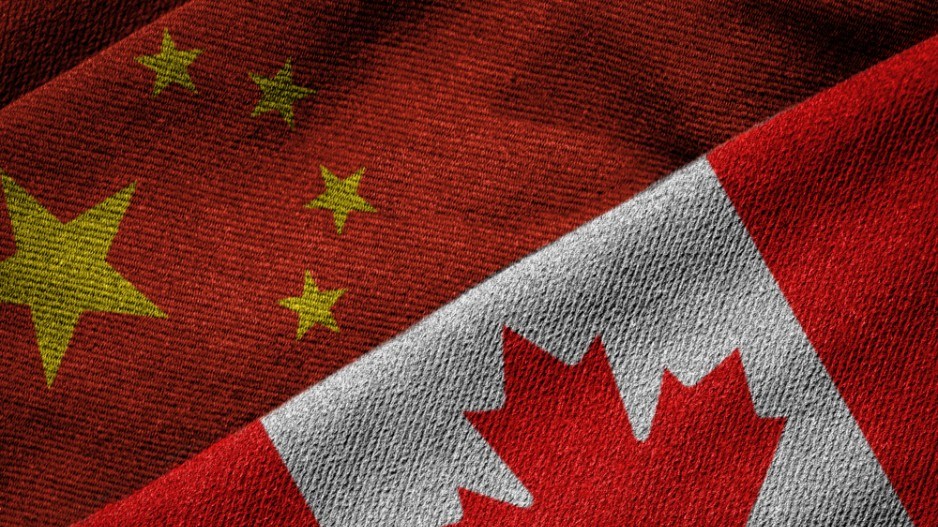Federal trade promotion officials said during a recent Vancouver visit that Canadian businesses considering doing business abroad appear to have been spooked by recent developments in China and the United States.
But they added that now may be the best time to test the water in markets that have little Canadian business presence.
That was the message from Global Affairs Canada (GAC) chief trade commissioner Ailish Campbell and Export Development Canada chief economist Peter Hall, who hosted a two-day round-table discussion on Canadian trade diversification in Vancouver March 21–22. And although both Campbell and Hall expressed long-term optimism in Canada’s trading relationships with the U.S. and China, they acknowledged that the increasingly protectionist policies globally and the ongoing tariff war between Washington and Beijing have dampened confidence locally.
“What [businesses] are telling us in general is … when there is turbulence in policy and you don’t know how things will settle, whether you should put your facilities here or in the United States, and how you may be compromised by temporary tariffs – these are real conversations we are having,” Hall said. “People are asking us these questions: ‘Tell me, how long is this going to be? Tell me, when will I have certainty?’ Everybody is, to some degree, in trade hesitation mode.
“When you see an investment that is going on right now, it’s typically because investment has a long lead time. You can’t just stop the train. But new investments … anecdotally, they are telling us these plans are on hold. That’s a great frustration and a great interruption to what I would describe as the otherwise normal flow of trade.”
There has been additional pressure on Canada-China trade recently, with the December arrest of Huawei Technologies Co. Ltd. CFO Meng Wanzhou in Vancouver spurring retaliation from Beijing. The latest of these moves occurred March 26 when China revoked the canola import permit of a second Canadian company – Regina-based Viterra Inc. – weeks after Beijing also banned shipments from Richardson International, citing pests found in the grains.
The moves may extend to other Canadian exports to China over time – a threat that has prompted a call for businesses to diversify away from China as well as the United States, which are B.C.’s and Canada’s second-largest and largest trade partners.
But while issues with Beijing, and Washington’s tariffs against Canadian steel and aluminum, continue to cast a cloud over Canadian small and medium-sized enterprises (SMEs) looking abroad, GAC’s Campbell said the challenging situation also presents a rare opportunity. She noted Canadian companies have preferential access to 1.5 billion of the world’s richest consumers through three trade pacts – the United States-Mexico-Canada Agreement, the Comprehensive Economic and Trade Agreement (CETA) between Canada and the European Union, and the Comprehensive and Progressive Agreement for Trans-Pacific Partnership (CPTPP) between Canada and Asia-Pacific countries.
“Canadians have gone global through their access to global supply chains largely with North American partners,” Campbell said. “What we are really excited about is embedding Canadian companies in the supply chains of large Asian internationals.… We firmly believe that trade with the U.S. will continue due to a number of factors. How do we get companies to think about where the next market is? Is it Mexico? Is it Japan? Is it South America?”
In B.C.’s case, its March trade mission to Japan and South Korea suggests the direction of provincial attention. Jobs, Trade and Technology Minister Bruce Ralston and Minister of State for Trade George Chow said in a statement that the March 16–22 trip was a success, culminating in a deal linking Burnaby-based D-Wave Systems Inc.’s artificial intelligence technology with Korean telecom giant SK Telecom.
Handol Kim, general manager of D-Wave’s Quadrant machine-learning services unit, said in a release that the province was “instrumental” in introducing the opportunity to the Burnaby company.
Campbell agreed that artificial intelligence and gaming software are areas where Canada can deepen trade relations with South Korea. But she added that other Asian markets should also not be overlooked, namely the growing middle-class consumer demands in Southeast Asia, including Vietnam, Malaysia and Brunei, which are now tariff-free though the 11-nation CPTPP agreement.
“We have less market penetration in Malaysia, Vietnam and Indonesia versus what we have in Japan or China,” Campbell said, adding there is now increasing demand for Canadian agri-food, fashion and health-care products. “This is the future; this is the next 20 years of export growth for Canada.”
Hall said another vast potential market is India, with the country’s population of 1.3 billion people representing an opportunity that Canadian SMEs need to seek out
“The potential growth of India, when matched with the size of its economy, sort of makes it the next China,” Hall said. “It’s what I call the China of this cycle; there’s an army of surplus labour there you can characterize as 600 million strong, and nobody else has anything quite like it.” •




